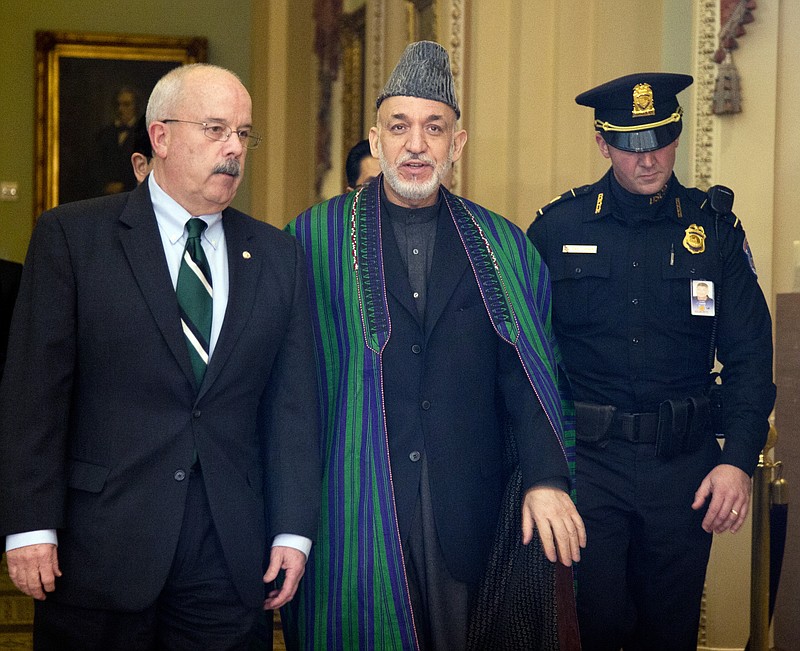WASHINGTON (AP) - It's the same debate, the same numbers and practically the same plan, but the White House is working harder to keep troops in Afghanistan than it did in similar but failed discussions in Iraq in 2011.
Security remains shaky in both war zones, but current and former U.S. officials say the Obama administration cannot afford to lose in Afghanistan after a dozen years of fighting and an ongoing threat by al-Qaida and its extremist Taliban allies. Defeating al-Qaida and bolstering Afghan forces to prevent the terror network's return there has been a top priority for President Barack Obama since he took office, while ending the war in Iraq was the fulfillment of a campaign promise.
"We've made a lot of progress against al-Qaida, but the job is not done," Doug Lute, the top White House military adviser on Afghanistan, told reporters this week. "The Afghan National Security Forces are a work in progress."
The U.S. has 66,000 troops in Afghanistan, down from a peak of about 100,000 as recently as 2010. Just how many troops might remain is at the heart of widespread discussion in Washington, where Afghanistan President Hamid Karzai meets with Obama on Friday.
As initially in Iraq, U.S. officials are considering keeping between 3,000 and 15,000 American troops in Afghanistan after 2014. That would not happen, however, if U.S. troops are denied legal immunity from prosecution in Afghanistan - which ultimately is what ended the same negotiations in Iraq.
"We've seen this movie so many times," said Sen. John McCain, the senior Republican on the Senate Armed Services Committee, who remains troubled over the Iraq withdrawal. In an interview Wednesday, he urged the White House to keep more than a few thousand troops in Afghanistan "to make a difference and not just become targets for attacks by a resurgent Taliban."
Karzai met Wednesday with Senate Republican leader Mitch McConnell and three members of the Foreign Relations and Armed Services committees. Asked what number of U.S. forces he would like to see in the country, Karzai declined to answer and joked that he was told by the "organizer of the Senate" to keep quiet.
"I hope we get back to Afghanistan with what the Afghans expect of me to take back," Karzai told reporters.
A Pentagon report to Congress in December concluded that only one of 23 Afghan National Army battalions was judged to be capable of operating in the field on its own - and even then needed international security advisers.
Afghanistan was dubbed "Obama's war" after the president surged troops there in 2009 to chase out extremist militants and eliminate their ability to return. By contrast, Obama as a candidate for president had called Iraq a "dumb war" and made ending it a campaign pledge.
However, the Obama administration negotiated with Baghdad throughout 2011 to keep U.S. troops in Iraq as a sort of insurance policy to block Iran from meddling in Iraq's Shiite-led government and, in turn, re-ignite the country's Sunni insurgency. Ultimately, Iraq's parliament refused to renew an agreement to give legal immunity to thousands of American forces, and the U.S. military left at the end of that year as required under a deadline set in 2008 by the administration of President George W. Bush.
Former Ambassador James F. Jeffrey, a career U.S. diplomat who oversaw the administration's failed negotiations in Baghdad in 2011, said "of course" Obama wanted to keep troops in Iraq and is trying now to keep them in Afghanistan.
"The numbers are eerily familiar and the missions are eerily familiar," said Jeffrey, who retired last year from the State Department. "I see him carrying out the same plan in Afghanistan that he tried to carry out in Iraq."

